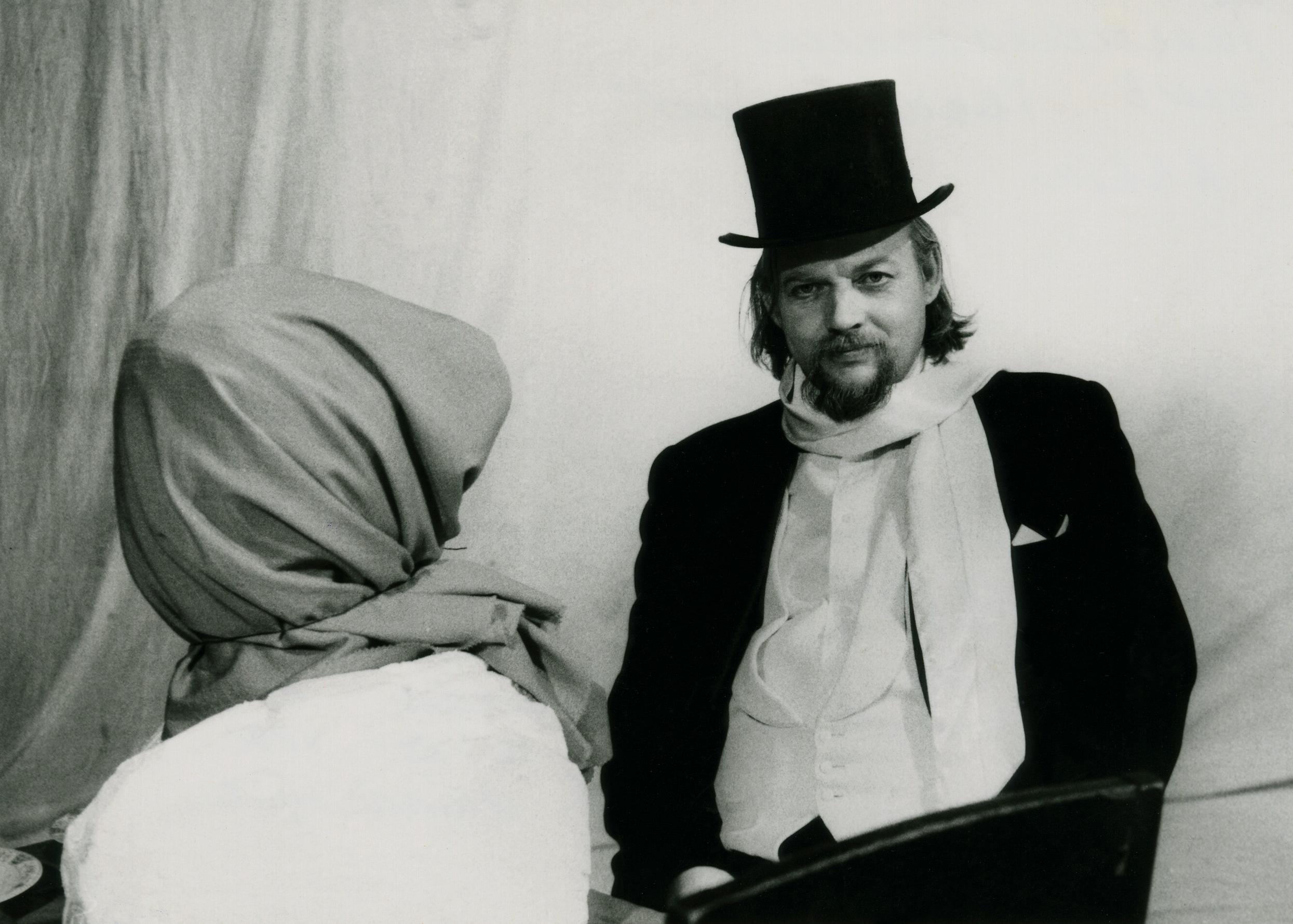A Short Poetics
You emerged from the sea—
red-bearded,
eyes bleached,
copper-skinned.
I watched you take a pair of scissors
and cut all the unwritten poems,
so this white paper
may decay below clouds
and brambles,
so the wind may revel
on this plain, good paper,
so beetles could come to lay there,
and so children,
sitting on this bench even as hail falls,
might read those empty texts.
dr. lu-ming and fate
V
i love you by the way
below my window a hilly landscape looms
with the earth’s largest pine forest
you are often seen there barefoot
hailing through the snow
a gentle smile on your face cheeks blushing
and then again this variegated chintz gown
through which your pretty breasts
can be sensed
by the way i love you
when a hundred kilometres away
madly you are running down a snowy slope
nude soles slapping
when as such you’re running towards me
i already hear over a hundred kilometres
the ringing of your pituitary gland
and an enormous full moon pours on this ringing
its ice cold intriguing silver
but maybe i love someone completely different
though more than anything else i love the traces
of your clean feet in the snow
in the morning i put on my skis
and ski along your traces for hundreds and hundreds of kilometres
sniffing each one of your toe-holes in the snow
without food nor drink
skiing and sniffing
until the midnight sun sets
then dead tired
in the embrace of darkness
i pass away
all this time you’re sitting
on the floor of my empty room
whining like a sick badger
—
what does the word for writing smell like today
the window so bare open that the alluring taste of the heaven
enters the room
i’m an estonian tourist and a malayan banker
i sit in a dark room and imitate writing
already for some time i have no quill nor pencil
i’m better off anyway
in a dark room sitting
imitating the crackling sound of quill on paper
letting the moon’s silver sabre cut off
all eleven toes
(the story about the foot is a political exaggeration
but i really do have eleven toes
ten regular toes and one
wisdom toe which grows back
every time after being cut off
but it seems
that i tend to exaggerate
also with regards to toes)
so:
sitting in a dark room
imitating the crackling sound of quill on paper
letting the moon’s silver sabre cut off
all ten toes
(the eleventh shall still remain conceivable)
i wait for the wind to bring inside my room
papers full of writing
wind sprang up
wind sprang up
and swept the tractor off the field
a most ordinary tractor
plump and metallic
dust lingered
in the field where it had been
the tractor soared over the center of the kolkhoz
its driver spotted his boss waving
but couldn’t quite think of what to do
he reached for a pack of priima
lit a cigarette
then paused to gather his thoughts
Translated by Kristjan Haljak and Ian Gwin
ABOUT THE AUTHOR
Andres Ehin (1940–2011) was Estonia’s most vibrant surrealist voice, a poet whose dream-logic and linguistic playfulness gave rise to a truly unique poetic idiom. While never formally affiliated with French surrealism, Ehin embodied its spirit through an intuitive and often hallucinatory imagination. His debut collection Wolf’s Oak (1968) revealed a tentative but fertile imagination, yet it was with his second book, Door on an Opening (1971), that he truly found his voice and established himself as the leading visionary of his generation. From that point on, in works such as Let the Bird Babble Outside (1977), his verse combined dark humour with eidetic clarity, absurdity with precision—culminating in his magnum opus The Subconscious Is Constantly Drunk (2000), a retrospective spanning four decades.
Ehin was not only a poet but also a translator, novelist, and performer, with an eclectic range reaching from Chukchi myths to Sufi mysticism. He wrote in the conviction that inspiration arises from sudden revelation and that poetry should be an act of magical immediacy. For him, imagination was not an escape from the world, but a radical way of being in it. His legacy continues through the work of his daughter, the poet Kristiina Ehin, and through his enduring ability to enchant language into strangeness and light.
With regards to the legacy of Estonian surrealism, the Latvian translator and poet Guntars Godiņš has written: “The phrase ‘Estonian surrealism’ is neither an accident nor nonsense, nor is it a mere imitation of French or German surrealists. It is a unique literary movement created by Estonian poets of different generations, based on the experiences and foundational traits of classical surrealism (and Dadaism), yet it remains a local phenomenon in Estonian poetry. [—] Surrealism is a unique and highly effective way of thinking, one that aims to derail the ordinary and suddenly reveal a new, uncharted continent in the ocean of our consciousness.”
Links:
